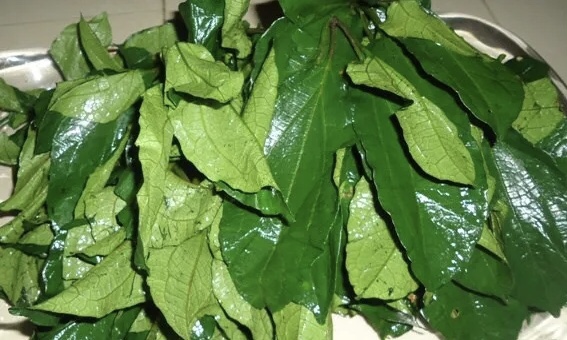In the heart of AlaIgbo, the land of the Igbo people, there exists a vegetable so cherished, so versatile, and so deeply intertwined with the culture and cuisine of this vibrant region that it can only be described as the green gold of Igbo land. This treasured vegetable is none other than Ugu, or as it’s known in English, pumpkin, a leafy wonder that has earned its place as arguably the most popular vegetable in the region.
Ugu leaves, scientifically known as Telfairia occidentalis, have a significance that extends far beyond their culinary applications. While they are primarily cultivated for cooking, these vibrant green leaves have also enjoyed remarkable popularity for their medicinal properties, further solidifying their place in the hearts and homes of the Igbo people.
The Diversity of Ugu (Pumpkin)
One of the most striking aspects of Ugu, or pumpkin, is its incredible diversity. As a vegetable, it is a versatile ingredient used in a wide variety of traditional dishes that grace the tables of Igbo households. From rice stew to Egwusi soup and from yam and vegetable porridge to countless other delicacies, Ugu, or pumpkin, lends its unique flavor and nutritional value to a myriad of dishes.
The leaves of the Ugu, or pumpkin, plant, with their dark green hue and slightly bitter taste, add depth and character to soups, stews, and porridges. They are known for their high nutrient content, including vitamins A, C, and E, as well as essential minerals like calcium and iron. This nutritional powerhouse not only enhances the flavor of Igbo cuisine but also contributes to the health and well-being of those who partake in it.
The Tropical Treasure
One of the factors that make Ugu, or pumpkin, truly special is its preference for tropical climates. This remarkable plant thrives in the warm and humid conditions of AlaIgbo, making it a staple crop in the region. However, its preference for tropical climates also means that Ugu, or pumpkin, is scarce in other parts of the world, particularly in regions with colder temperatures, such as Europe.
As a result, the Igbo nation remains the largest producer and consumer of Ugu, or pumpkin, worldwide. This unique status has transformed Ugu, or pumpkin, into a cultural icon, symbolizing the rich culinary heritage of the Igbo people. The deep connection between Ugu, or pumpkin, and the Igbo culture is further highlighted by its presence in various ceremonies, festivals, and gatherings, where it plays a central role in the preparation of traditional dishes that bring communities together.
Ugu, or pumpkin, Beyond Borders
While Ugu, or pumpkin, may be scarce in other parts of the world, the Igbo people are known for their spirit of adventure and their global presence as travelers and entrepreneurs. As a result, the demand for Ugu leaves and Ugu-related products, or pumpkin products, has extended far beyond the borders of AlaIgbo. It’s not just the Igbo diaspora that seeks out this green treasure; people from diverse backgrounds have also discovered the great benefits of this wonderful vegetable.
In Conclusion
Ugu, or pumpkin, is more than just a vegetable; it’s a symbol of the rich culinary heritage and cultural identity of the Igbo people. Its versatility, nutritional value, and unique flavor have made it a beloved ingredient in Igbo cuisine and a sought-after commodity worldwide. At Ikenga Store, we are proud to share the magic of Ugu, or pumpkin, with the world, bridging the gap between cultures and continents through the love of this green gold from AlaIgbo.




GIPHY App Key not set. Please check settings